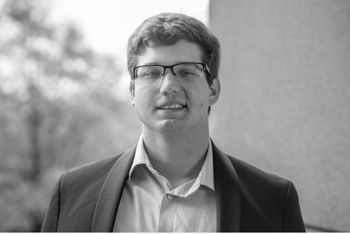Harvard faculty call on school to commit to free inquiry
A group of Harvard faculty members issued a statement claiming that ‘[e]very member of the academic community should be free from fear of reprisal for positions they defend, questions they ask, or ideas they entertain.’
The statement also called on Harvard’s administration to issue a ‘full-throated endorsement of academic freedom.’
Some faculty at Harvard are calling on the Ivy League university to adopt standards of more open debate and free inquiry.
The Council on Academic Freedom at Harvard (CAFH), which describes itself as a gathering of Harvard faculty members “who support free inquiry, intellectual diversity, and civil discourse,” adopted a statement on Jan. 31 titled “The Freedoms of a University.”
“A university has two great obligations to society: to foster the discovery and dissemination of knowledge and understanding, and to prepare students for lives of meaning, purpose, and service. To discharge the first obligation, a university must ensure that the work of its scholars receives robust, informed, and impartial appraisal that applies the best truth-seeking standards appropriate to their discipline . . . When it comes to the university’s research mission, academic freedom exists to enable discovery without fetters,” said the statement.
[RELATED: Harvard profs slam DEI, call for reforms to enhance academic freedom]
Universities should also be open about where they receive their funding from and resist efforts to use the government to “curtail academic freedom,” it added.
“To discharge its second obligation, a university must train students and teachers to engage across disagreement, learning to treat with intellectual seriousness and honesty the wide range of ideas and perspectives that live within our diverse community. We all suffer from blind spots and a dangerous if natural resistance to considering the full range of what is possible. A university education targets this resistance, developing in students (and faculty) the habits of mind crucial to a self-governing people. In our teaching, academic freedom exists first and foremost to oppose the oppression and poverty of ignorance,” the statement continued.
The CAFH members continued, writing that “[e]very member of the academic community should be free from fear of reprisal for positions they defend, questions they ask, or ideas they entertain. We should all welcome thoughtful critique – and be able to engage with each other confident that neither attacks on our character nor the threat of institutional sanction will take its place.”
The statement ended with a call to action, saying Harvard leadership should “set the tone with a full-throated endorsement of academic freedom, and by adopting and enforcing rules that safeguard the freedoms we should all enjoy.” It also called on faculty to “recognize the singular role that their position and expertise give them in creating educational settings that promote these freedoms and their responsible exercise,” and claimed that students should “embrace the challenge of responding to unsettling ideas with an ethic of compassion, courage, and curiosity.”
[RELATED: American Bar Association passes resolution requiring law schools to adopt pro-free speech policies]
The statement was issued at a time when Harvard is still dealing with the fallout over former university president Claudine Gay’s resignation, as The Harvard Crimson wrote.
Gay resigned following allegations that she was guilty of plagiarism and a scandal surrounding her congressional testimony in December that many claimed showed her apparent lack of concern regarding anti-Semitic rhetoric on Harvard’s campus.
Campus Reform has reached out to CAFH for comment. The article will be updated accordingly.

